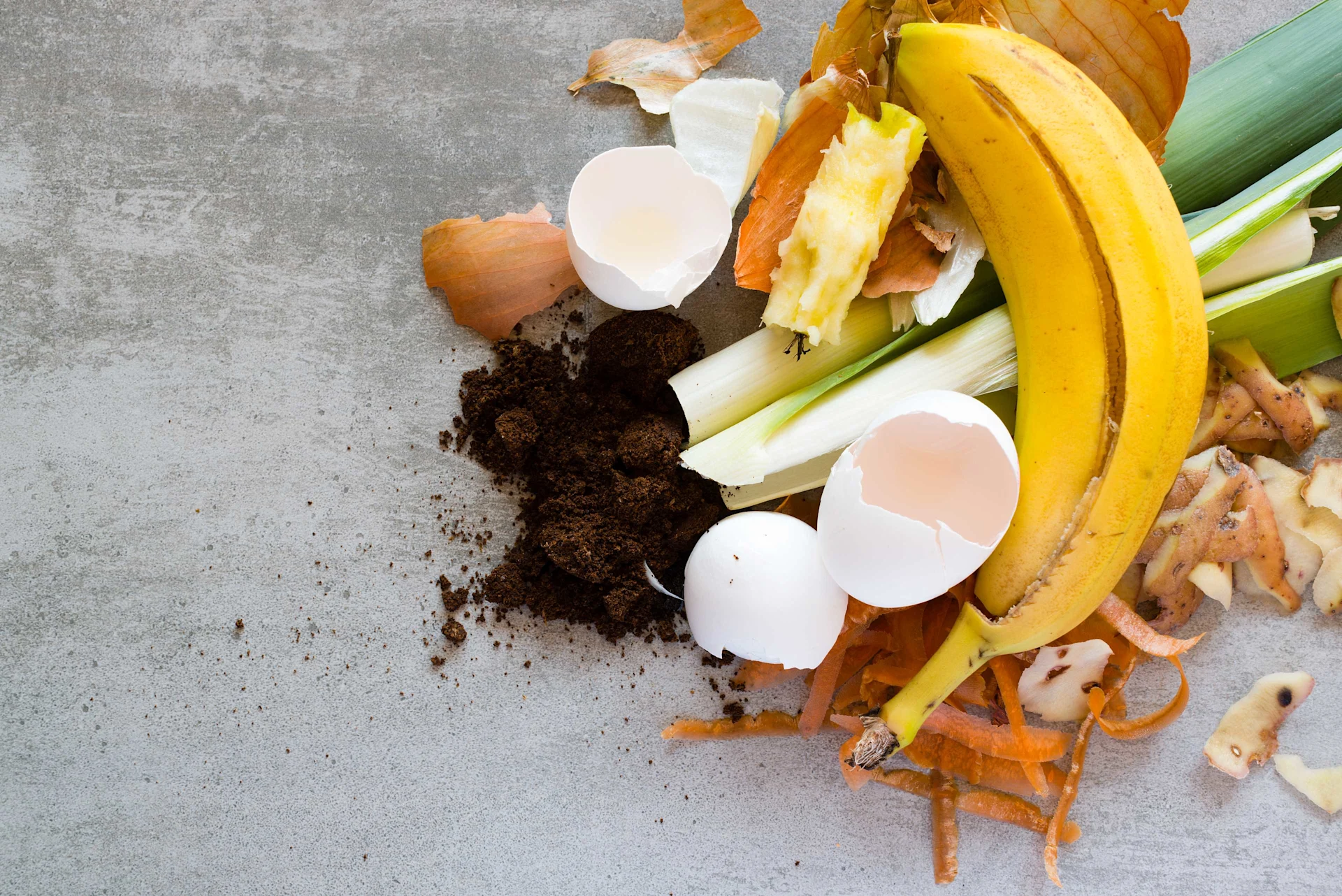
Food waste
What do you know about food waste?
Take part in the food waste quiz and find out how much you already know.
navigation
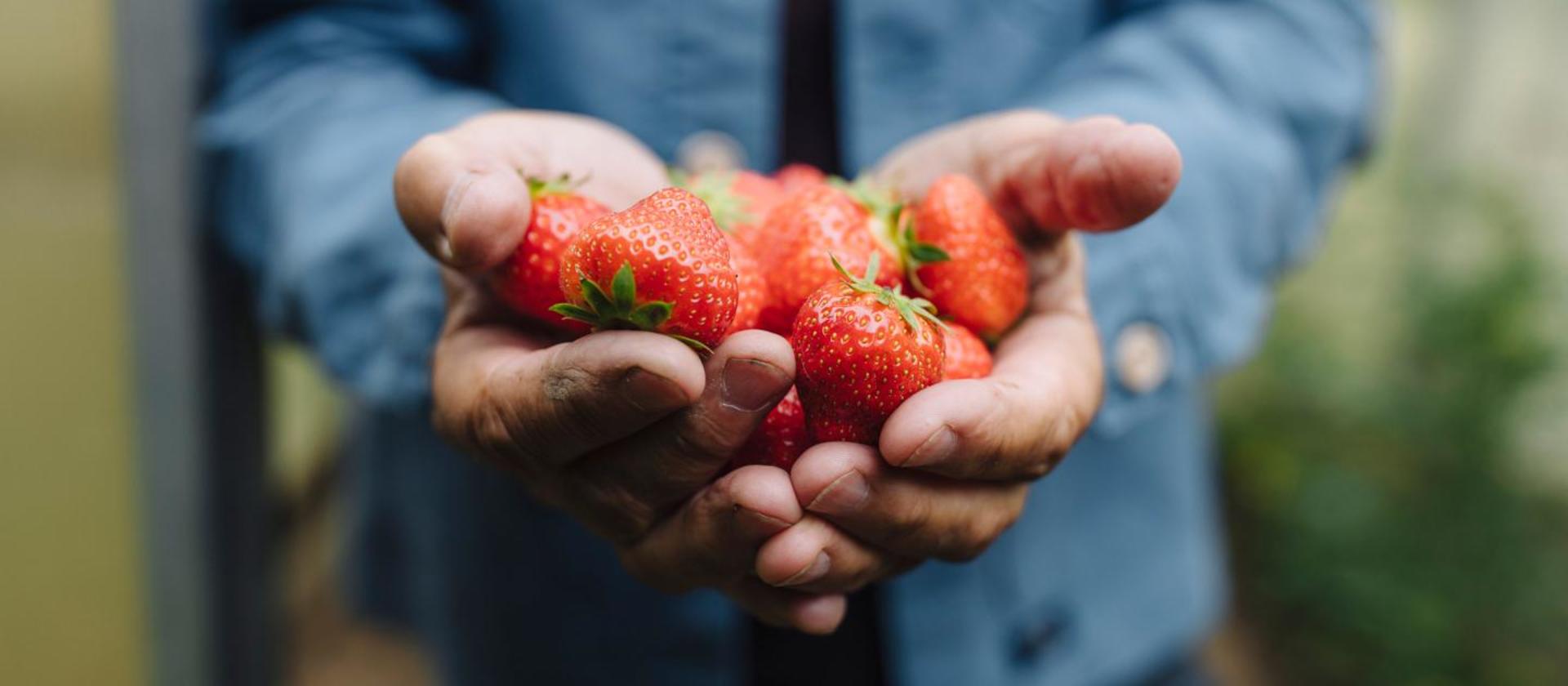
Food waste
Bite into a juicy, sweet strawberry - what a treat! Throwing away mouldy strawberries, on the other hand, is a frustration. How you can avoid this with vinegar.
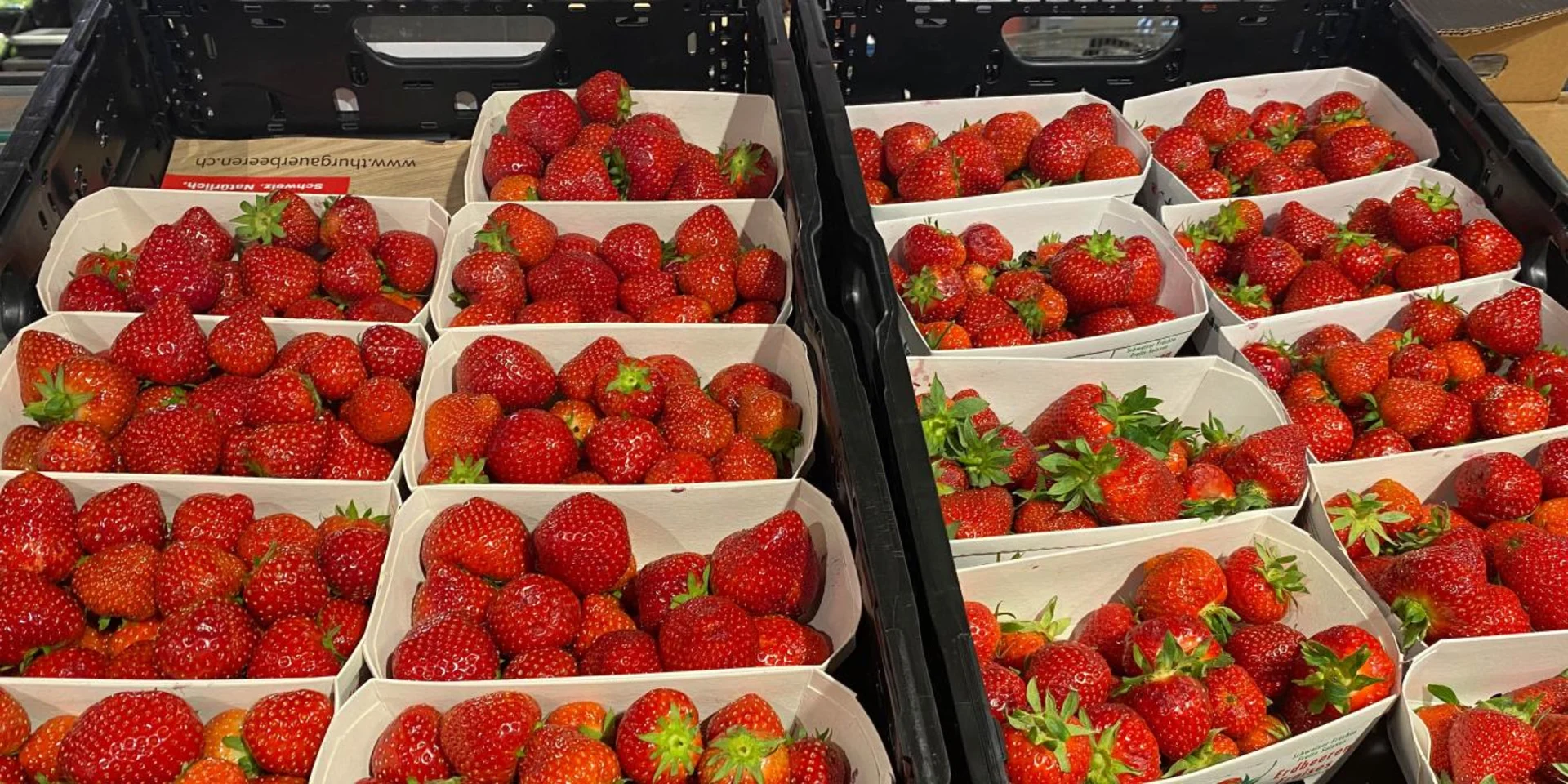
Strawberries don’t continue ripening after picking – they are already ripe, making them very sensitive to pressure. But nobody likes squishy berries. So check the strawberries have no bruising before buying them at the store, as they are then more likely to last longer at home.
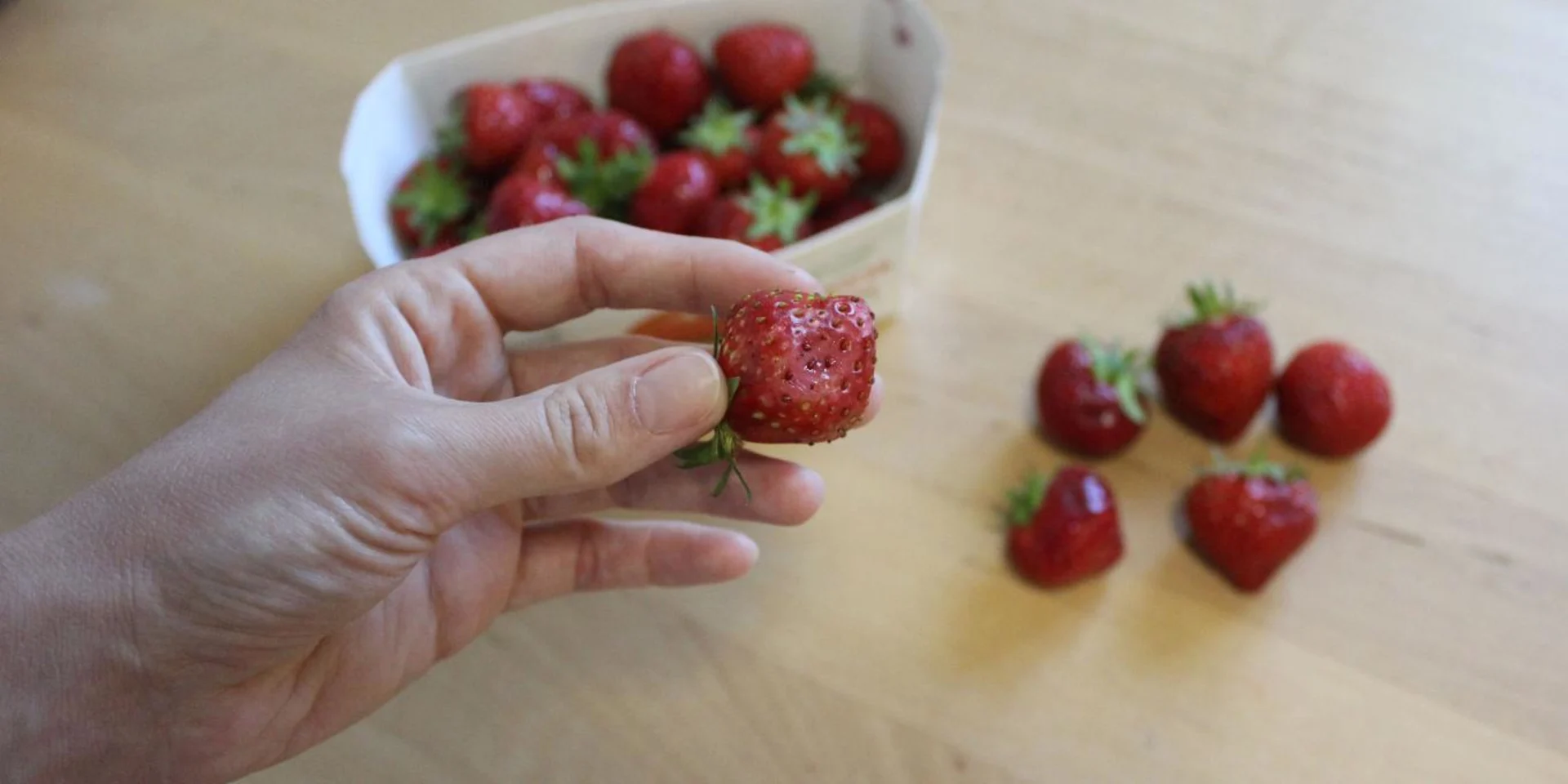
Once you’re back home, it’s best to take a close look at the strawberries in the pack rather than putting them straight in the fridge. Take out any squashed or very ripe fruit and remove any bad bits. This fruit is best eaten immediately.
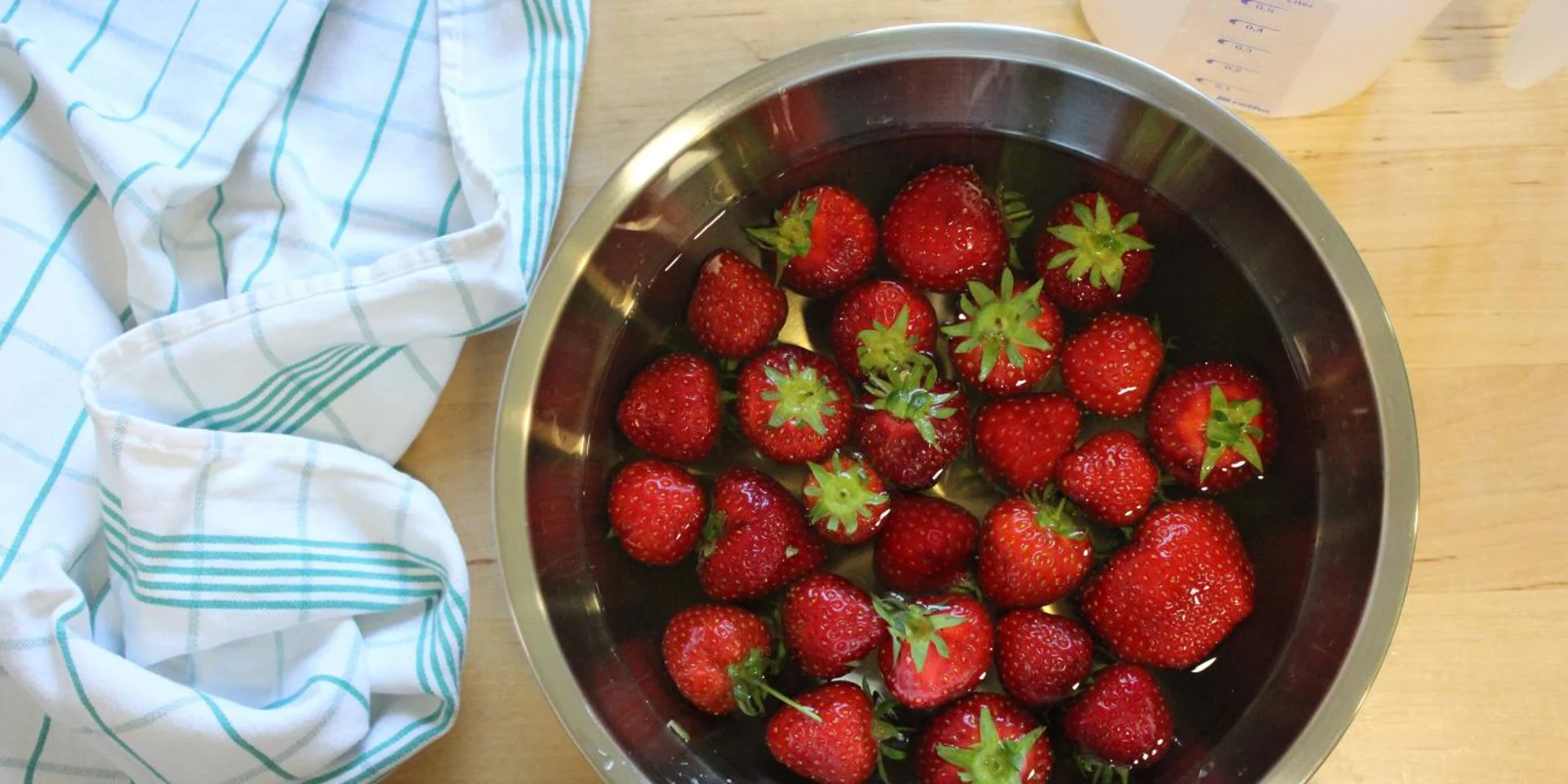
Put the still intact strawberries in a special water bath. Mix four parts water and one part light vinegar in a bowl. The vinegar effectively counteracts the mould spores and bacteria on the surface responsible for the mould. Carefully place the strawberries into the bath, making sure the liquid covers them all.
Leave the vinegar mixture to work for two minutes. Then rinse the fruit thoroughly under cold water to get rid of the vinegary taste. Note that strawberries cannot withstand a powerful jet of water.
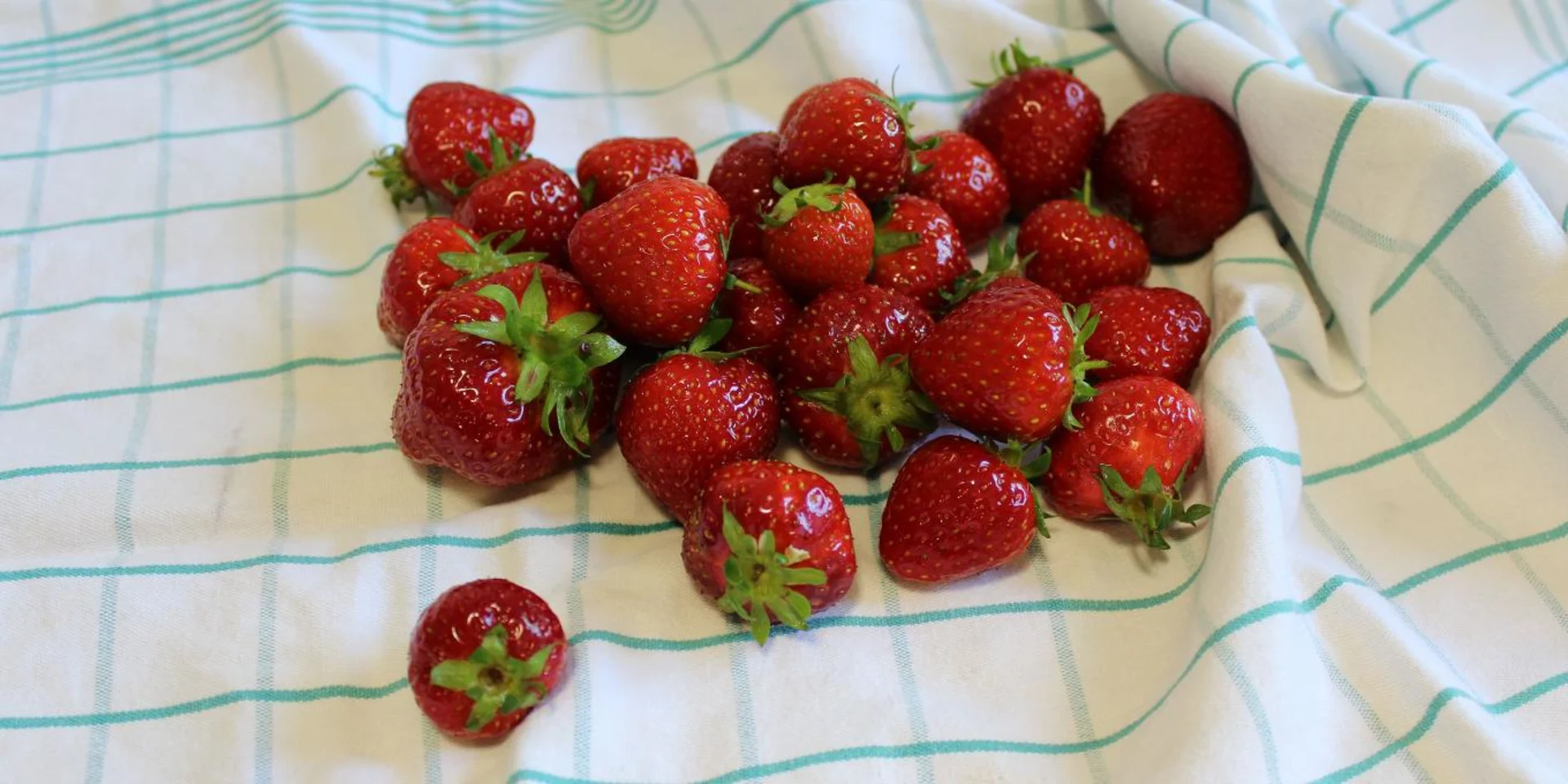
Next, you need to carefully dab dry the bathed strawberries with kitchen roll or a soft tea towel. If they are left wet, soft spots will quickly form, and all your efforts will have been in vain.
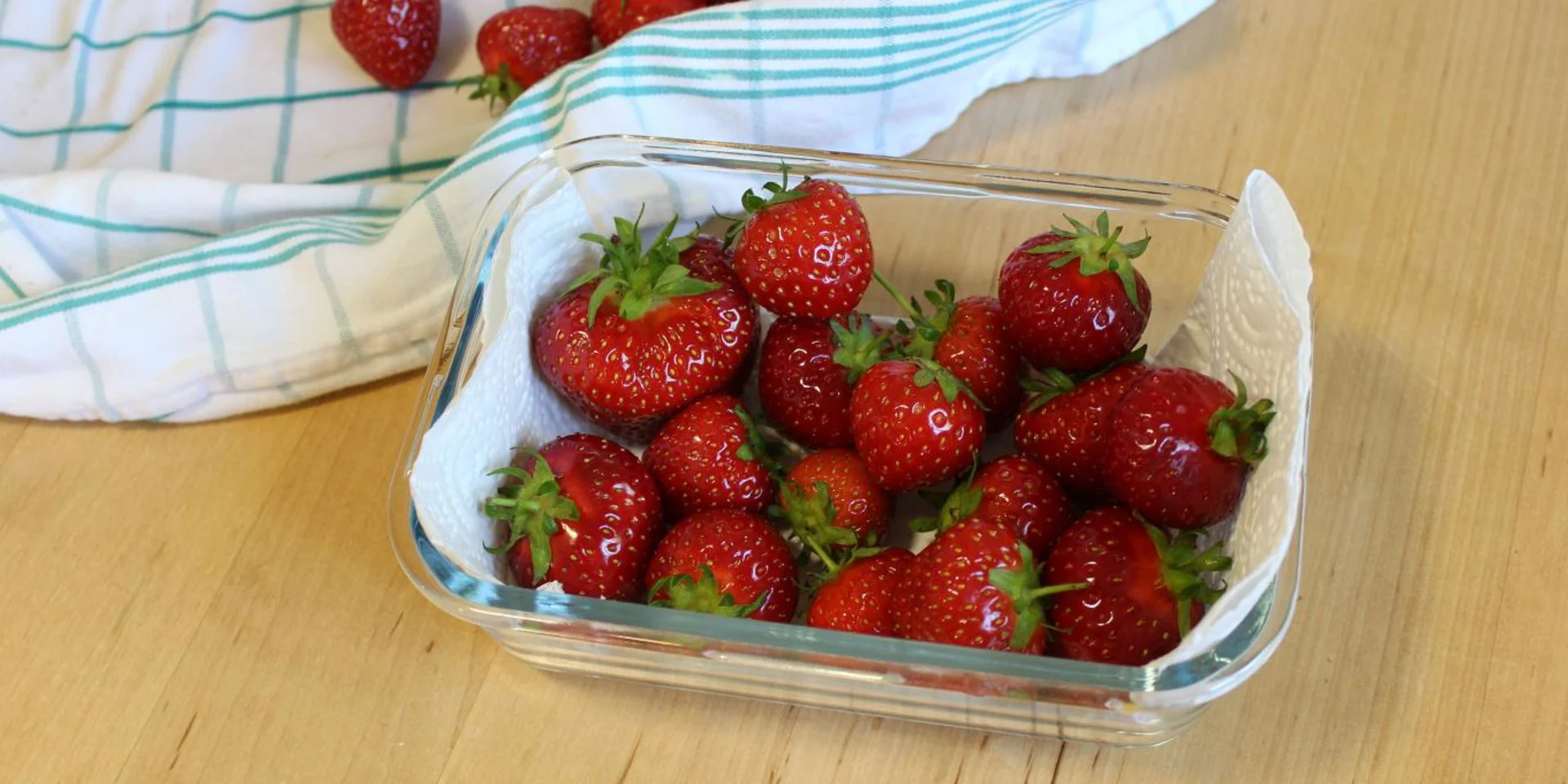
Cool and dry – these are the key things to remember when storing your favourite berries. You can use various types of container. Take a lidless container, line it with a piece of kitchen roll or a cloth and then carefully place the strawberries inside, ensuring they don’t get crushed.
Put the lidless container in your fridge’s vegetable drawer. Alternatively, you could put the dry strawberries in a sieve – to ensure good air circulation – and then pop this in the vegetable drawer.
In both cases, the stalk should remain on the fruit until you’re ready to eat it. Keep checking to make sure all the fruit is still intact and whether the kitchen roll or cloth is wet. The strawberries will keep for about two to three days.
If you can’t eat all the strawberries in time and don’t want to use them to make jam or smoothies, there’s a way to stop them from going squidgy – simply freeze them to avoid food waste. You’ll need to remove the stalks first in this case. Strawberries will keep for up to a year in the freezer.
Discover delicious recipes with strawberries on Migusto
Published 14.06.2023, revised 12.05.2025
With simple tips, you too can reduce food waste. Join now and let’s save food together.